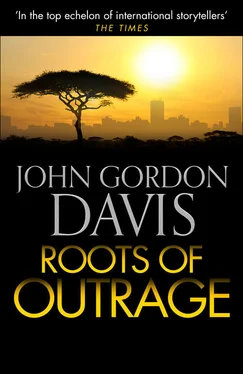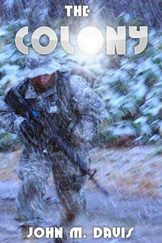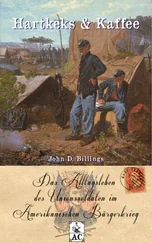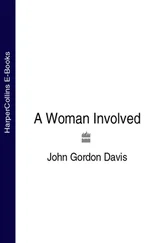Ernest’s fear was well founded: King Dingaan was afraid of these Amaboela, these white men who rode swift ‘hornless cattle’ and used strange weapons with devastating effect; men who – his spies told him – had recently routed Mzilikazi, and who now wanted to settle on his borders. When Dingaan finally received these people midst great pomp and praise-singing he spent three days impressing them with his might, by military displays and frightening dancing by his magnificent regiments, the earth shaking under the synchronised stamping of their feet, their battle cries rising up to the skies. But finally he announced he would consider the request for a land grant favourably if Retief recovered cattle that had been stolen by a distant tribe.
Retief and his men were in high spirits as they set out to fulfil the bargain, but Ernest was a very worried young man: he was fearful of the Zulus, ‘ deeply suspicious at how simply a grant of land the size of England was arranged. The whole thing reeks of blood …’ When Retief set off he sent two horsemen back to the Drakensberg with the tidings and Ernest seized the opportunity to ride with them, to persuade Sarie to leave this frightening land and go back to America with him.
The voortrekkers’ joy was unbounded when the horsemen toiled up the last crest of the Drakensberg with the news, but the most joyful was Sarie Smit, who had big news for Ernest: ‘I am pregnant …’
Love-sick Ernest was overjoyed. But Sarie refused to go with him to America: her place was with her volk. And so, because his heart and honour ruled his head, Ernest Mahoney went back down the Drakensberg Mountains. And the roots of the Mahoney clan in Africa were set down.
Retief recaptured the stolen cattle and returned to Dingaan’s royal kraal to claim his grant of land. Dingaan made his mark on the deed Retief proffered, then leapt up and shouted: ‘Kill the wizards!’ Warriors fell on Retief and his men from all sides, dragged them up to the Hill of Executions and clubbed them to death. Then, plumes dancing, assegais flashing, the impis set out across the land to slay the voortrekkers encamped at the foot of the Drakensberg. Hundreds were slain in the terrible massacre that followed, hundreds of wagons burned, twenty-five thousand head of cattle driven off. Ernest and Sarie survived because they were encamped miles from the main killing grounds but the whole of her family was butchered. The surviving voortrekkers were in a dreadful plight as they awaited the next onslaught and desperately hoped for reinforcements to arrive from the highveld. ‘ Is there a curse on this land that lies in shadows? ’ Ernest chronicled.
At last, the prestigious Boer Andries Pretorius descended the Drakensberg and rallied the beleaguered trekkers. He mounted a commando of five hundred men and set off to do battle with Dingaan. En route a Holy Covenant was taken that if God gave them victory they would forever hold the anniversary of the battle-day hallowed, that they would build a church in thanksgiving and forever live according to His laws.
Pretorius chose his battleground on the banks of the Blood River, where two sides of his laager were protected by the confluences. In the ensuing battle five hundred Boers defeated twelve thousand magnificent Zulu warriors, killing three thousand of them as they hurled themselves against the laager. Not one Boer life was lost. And thus was the conviction born amongst these simple, God-fearing folk that God had entered into a covenant with them, as He had with Moses and his Israelites, and that henceforth everything they did would be with His blessing. Thus was a theocracy born. It was to survive a hundred and fifty years.
Ernest took part in the Battle of Blood River. That night he wrote in his chronicle:
… while I am as thankful to the Lord as any, it can only be said that it was not a battle in the normal sense, but a mass execution of a magnificent army heroically taking on superior weapons. No army of white men, I believe, would have been so valiant, so disciplined, as these Zulus today … The Boers are convinced that the Lord has accepted their Covenant. But as a trained theologian, albeit a poor example, I am by no means sure: it was surely the musket that won the day – as it is winning in America against the Indians, for why should the Lord make a bargain with one tribe at such tremendous and heartless expense of another? And while I admire these Boers, and applaud their piety, it worries me that they are fond of referring to Genesis where it says that God made the sons of Ham black, to be hewers of wood and drawers of water …
And so the Boers set up their republic of New Holland, electing their volksraad, building their church. Ernest married his beloved Sarie ( ‘Such happiness as I have never imagined possible …’ his chronicle records). They built a hut as storage for Harker-Mahoney and began to trade in ivory and hides with what few vessels braved the sandbars. Sarie was pregnant again when the British came sailing up the coast to put an end to this impertinent new republic.
The Boers are outraged. They left their farms in the Cape Colony and trekked into the savage unknown because of Britain’s unjust maladministration, they braved the dreaded Mzilikazi, overcame the steep Drakensberg Mountains, suffered the bloody treachery of Dingaan, braved his fearsome Zulus at Blood River, and now that they have at last got their republican freedom along come the lordly British to take it all away. Personally, I understand the British view-point: the Boers are Her Majesty’s subjects who have established an illegal regime and, I hear, have seized Zulu children to work as ‘apprentices’ in a thinly disguised form of slavery … But my Sarie does not understand: she rode over to the beach as the British disembarked and, astride her horse, pointed at her swollen belly and informed the commanding officer and his admiring men that her forthcoming son was not only an American citizen but a Boer to boot and that they would have to trample over her dead body, and numerous of their own, if they imagined that the young Queen Victoria was going to deprive her unborn child of its republican birthright. ‘I would rather walk barefoot over the Drakensberg again than submit to British rule!’ cried she …
The Boers furiously laid siege to them at the lagoon, but reinforcements arrived overland and the Boers were defeated. And Sarie Mahoney kept her pledge.
So the Boers abandoned their new homesteads, trekked back over the Drakensberg and established their republics on the highveld, the Orange Free State, and the Transvaal Republic. The British government was unwilling to spend money on military campaigns and administration so, after a few skirmishes and considerable bluster, it formally recognised the legal independence of these two republics, in 1852 and 1854.
And so the Great Trek was over, twelve years after it began. The Boers at last had their republican freedom, without the accursed British laying down the law, without missionaries meddling and blaming them for the savagery of Africa, without vagrants roaming unpunished. There was no more egalitarian nonsense: a black man knew his place again. It was the Lekker Lewe once more, limitless land again, proper labour again, and security at last. Mzilikazi had fled across the Limpopo, and the distant Zulus were the British government’s problem now, like the infernal Xhosa.
And a problem they were: in the following decades the British had to fight three more Kaffir Wars and re-annex the land across the Fish right up to the border of the new colony of Natal. And the British had plenty of trouble with the Zulus too. Dingaan’s grandson, Cetshwayo, began to weld his people back together, and there was cattle-thieving, and warlike noises again. Then, on the eastern frontier, came the Great Cattle Killing, and there was chaos.
Читать дальше












